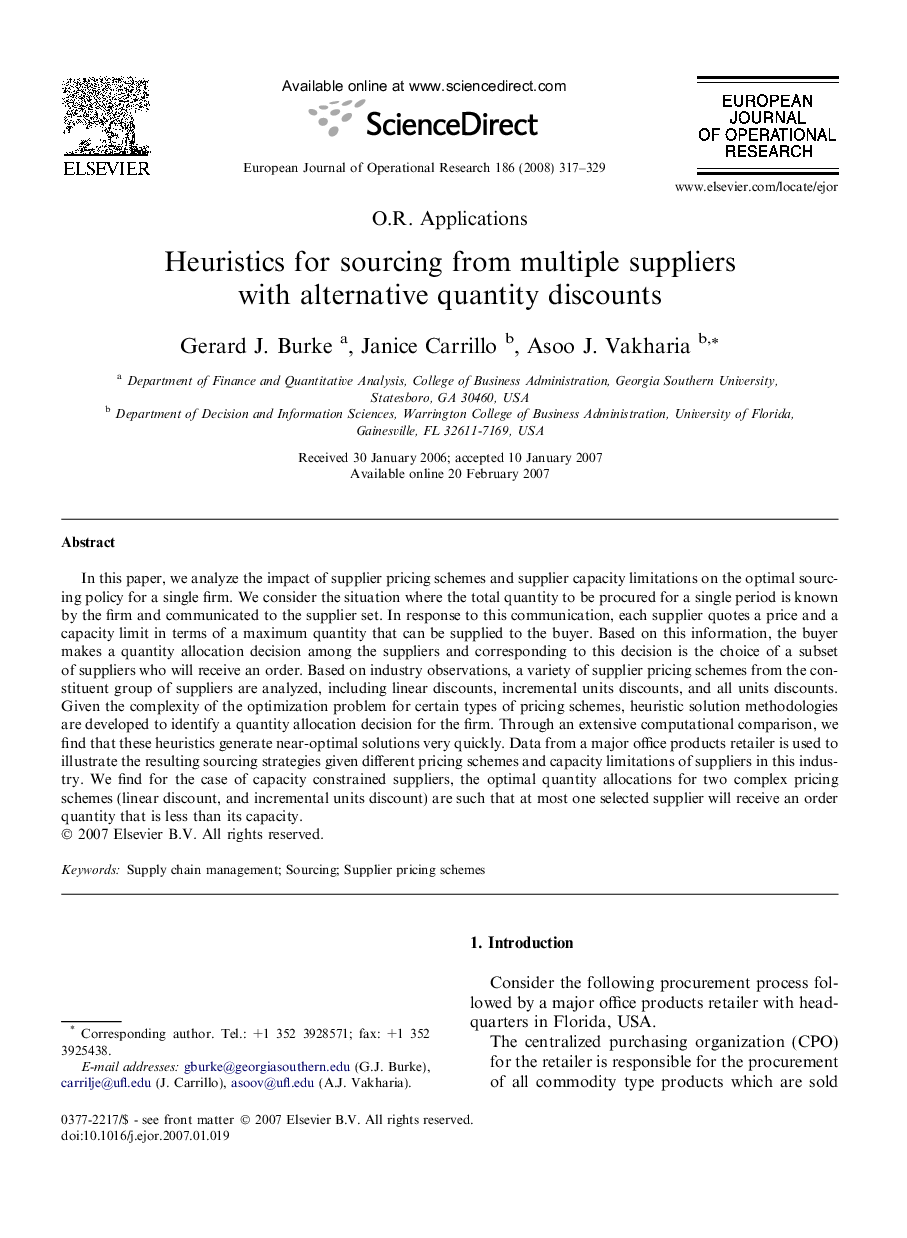| Article ID | Journal | Published Year | Pages | File Type |
|---|---|---|---|---|
| 477733 | European Journal of Operational Research | 2008 | 13 Pages |
In this paper, we analyze the impact of supplier pricing schemes and supplier capacity limitations on the optimal sourcing policy for a single firm. We consider the situation where the total quantity to be procured for a single period is known by the firm and communicated to the supplier set. In response to this communication, each supplier quotes a price and a capacity limit in terms of a maximum quantity that can be supplied to the buyer. Based on this information, the buyer makes a quantity allocation decision among the suppliers and corresponding to this decision is the choice of a subset of suppliers who will receive an order. Based on industry observations, a variety of supplier pricing schemes from the constituent group of suppliers are analyzed, including linear discounts, incremental units discounts, and all units discounts. Given the complexity of the optimization problem for certain types of pricing schemes, heuristic solution methodologies are developed to identify a quantity allocation decision for the firm. Through an extensive computational comparison, we find that these heuristics generate near-optimal solutions very quickly. Data from a major office products retailer is used to illustrate the resulting sourcing strategies given different pricing schemes and capacity limitations of suppliers in this industry. We find for the case of capacity constrained suppliers, the optimal quantity allocations for two complex pricing schemes (linear discount, and incremental units discount) are such that at most one selected supplier will receive an order quantity that is less than its capacity.
